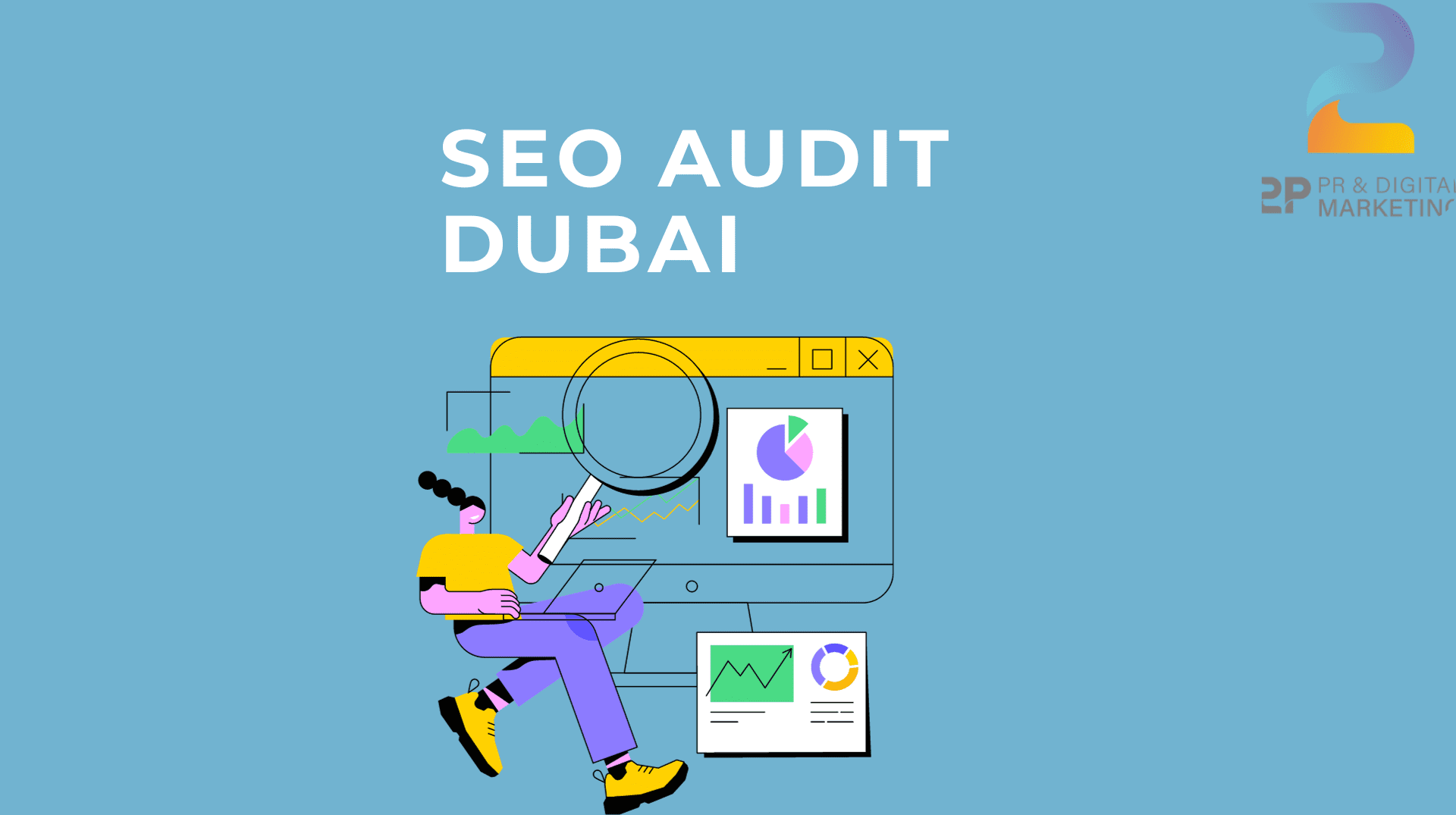An SEO audit is akin to a routine medical check-up but for a website. It pinpoints areas of strength, identifies ailments, and prescribes remedies to ensure the site remains in its prime health. For businesses in Dubai, where the digital competition is fierce, missing out on such an audit could mean losing significant online traction.
In this post, we’ll dive deep into the nuances of SEO audits, especially in the context of Dubai’s vibrant digital ecosystem, and explore why it’s more of a necessity than a luxury for modern businesses. Buckle up, as we embark on this insightful journey into the world of SEO!
What is an SEO Audit dubai?
An SEO (Search Engine Optimization) audit is a thorough examination of a website to determine how well it is optimized for search engines. Just as a vehicle might undergo periodic checks to ensure it runs smoothly, a website needs regular audits to ensure it ranks well in search engine results. An SEO audit identifies potential optimization points, both on and off the site, that can help improve its visibility in search engine results pages (SERPs), increase organic traffic, and ensure the best user experience.
7 Benefits of technical SEO Audit dubai
A technical SEO audit scrutinizes a website’s foundational elements for search engine compatibility, emphasizing structural improvements. Key benefits include enhanced crawlability, speed, and structure.
Improved Website Crawlability:
One of the primary objectives of a technical audit is to ensure search engine bots can efficiently crawl and index all relevant pages on your website. By identifying and rectifying crawl errors, you ensure that Google and other search engines can easily understand the content and structure of your site.
Enhanced Page Load Speed:
Speed is a significant ranking factor. A technical audit pinpoints elements that might be slowing down your site—like unoptimized images, bloated code, or slow server response times—and offers solutions to improve page load times, thus enhancing user experience.
Mobile Optimization:
With the increasing shift to mobile browsing, ensuring your website is mobile-friendly is paramount. The audit checks for mobile usability issues, helping you optimize the mobile version of your site for better rankings and user engagement.
Secured Website:
A technical SEO audit also assesses the security of your website. Ensuring your site operates under HTTPS, for instance, not only builds trust with visitors but is also a ranking factor in Google’s algorithm.
Elimination of Duplicate Content:
Duplicate content can confuse search engines and dilute your site’s relevance. An audit helps identify and address such issues, ensuring that each page on your site has unique content and serves a distinct purpose.
Optimized Internal Linking:
Proper internal linking can distribute page authority throughout your site and enhance user navigation. A technical audit evaluates your site’s internal link structure, ensuring it’s coherent and effectively guiding users and search engines.
Redirection and Error Fixes:
Broken links, 404 errors, and improper redirects can hurt your SEO efforts. Through a technical audit, these issues are identified and can be promptly rectified.
Improved XML Sitemap and Robots.txt:
An accurate XML sitemap helps search engines understand the structure of your site. Similarly, a correctly configured robots.txt file ensures search engines know which pages to crawl and which to ignore. An audit ensures both these elements are set up correctly.
Structured Data Implementation:
Structured data helps search engines understand the context of your content and can result in rich snippets in the SERPs, enhancing click-through rates. A technical audit can guide the proper implementation of structured schema markup.
Cleaner URL Structures: A well-structured URL not only aids in better user experience but is also preferred by search engines. Technical audits can help in optimizing URL structures for clarity and relevance.
Read more
Leading SEO Consultant in Dubai
Elements of SEO Audit dubai
Technical SEO involves optimizing various technical aspects of a website to improve its search engine visibility and user experience. Here are the key elements and components of technical SEO:
- Website Speed and Performance:
- Page load times: Optimize page speed to improve user experience and search engine rankings.
- Mobile speed: Ensure fast loading on mobile devices for mobile-friendly websites.
- Minimize HTTP requests: Reduce the number of requests required to load a page.
- Browser caching: Enable browser caching to store static resources locally.
- Mobile Optimization:
- Mobile-friendly design: Ensure the website is responsive and functions well on mobile devices.
- Mobile usability: Optimize touch elements, font sizes, and viewport settings for mobile users.
- Mobile-first indexing: Make sure your site is prepared for Google’s mobile-first indexing.
- Website Security (HTTPS):
- Implement SSL/TLS certificates to secure the website (HTTP to HTTPS).
- Ensure data transmission between the server and user is encrypted.
- Google prefers secure websites and may rank them higher.
- Crawlability and Indexability:
- Robots.txt file: Create and optimize a robots.txt file to control search engine access to specific pages.
- XML sitemap: Generate and submit an XML sitemap to help search engines discover and index pages.
- Canonicalization: Use canonical tags to prevent duplicate content issues.
- URL structure: Maintain clean and descriptive URLs.
- Website Structure:
- Logical hierarchy: Organize content with a clear hierarchy using proper header tags (H1, H2, etc.).
- Breadcrumbs: Implement breadcrumb navigation for easier site navigation.
- Internal linking: Use internal links to connect related content and improve user experience.
- Schema Markup and Structured Data:
- Implement structured data markup (schema.org) to provide search engines with additional context about your content.
- Rich snippets: Enhance search engine results with structured data for events, reviews, recipes, etc.
- Mobile-First Optimization:
- Ensure content is readily available and functional on mobile devices.
- Optimize images and media for mobile consumption.
- Implement responsive design and mobile-friendly layouts.
- Website Accessibility:
- Ensure the website is accessible to users with disabilities (e.g., screen readers).
- Comply with accessibility standards like WCAG (Web Content Accessibility Guidelines).
- Page Rendering:
- Ensure that search engine crawlers can access and render JavaScript-rendered content.
- Test the rendering of pages in Google’s Fetch and Render tool.
- Server and Hosting Optimization:
- Choose a reliable and fast web hosting provider.
- Configure server settings for optimal performance and security.
- Monitor server uptime and response times.
- Internationalization and Multilingual SEO (if applicable):
- Implement hreflang tags for international and multilingual websites.
- Optimize content for different languages and regions.
- Pagination and Pagination Best Practices:
- Implement pagination correctly for paginated content (e.g., blog archives, product listings).
- Use rel=”next” and rel=”prev” tags to signal the relationship between paginated pages.
- 404 Error Handling:
- Customize and optimize the 404 error page to guide users back to relevant content.
- Monitor and fix broken links and 404 errors.
- SSL/TLS Security:
- Ensure the use of secure encryption protocols to protect user data and gain SEO benefits.
- Performance Optimization:
- Compress images and minify CSS/JavaScript files to reduce page load times.
- Optimize server response times and reduce server requests.
- Structured Data Markup:
- Implement structured data to enhance search engine results with rich snippets.
- Redirect Management:
- Implement 301 redirects for outdated or deleted content.
- Use 302 redirects sparingly and appropriately for temporary content moves.
- Website Analytics:
- Integrate website analytics tools (e.g., Google Analytics) for tracking and monitoring site performance.
Technical SEO is a critical component of an overall SEO strategy, as it ensures that search engines can crawl, index, and understand your website’s content while providing a positive user experience.

Here’s a simplified overview of the SEO auditing process for any website.
1. Client Discovery and Onboarding:
- Begin by understanding the client’s business goals, target audience, and current SEO efforts.
- Collect access to the client’s website, analytics, and other relevant data sources.
- Sign a contract and establish clear expectations and timelines.
2. Initial Website Assessment:
- Perform a preliminary analysis of the client’s website to identify any glaring issues.
- Check for basic technical SEO elements, such as site speed, mobile-friendliness, and HTTPS status.
- Gather information on the client’s current keyword rankings and backlink profile.
3. Keyword Research and Competitor Analysis:
- Conduct in-depth keyword research to identify relevant keywords and phrases.
- Analyze competitor websites to understand their SEO strategies and identify opportunities.
- Develop a list of target keywords and key performance indicators (KPIs).
4. Technical SEO Audit:
- Perform a comprehensive technical SEO audit of the client’s website.
- Assess factors like crawlability, indexability, URL structure, and internal linking.
- Identify and prioritize technical issues that need attention, such as broken links or duplicate content.
5. On-Page SEO Audit:
- Evaluate on-page seo elements like title tags, meta descriptions, header tags, and keyword usage.
- Analyze content quality and relevance.
- Check for mobile optimization and user-friendly design.
6. Backlink Analysis:
- Examine the client’s backlink profile for quality and quantity.
- Identify toxic or spammy backlinks that may need to be disavowed.
- Develop a strategy to build high-quality backlinks.
7. Content Audit:
- Review the existing content on the client’s website.
- Identify content gaps and opportunities for creating new, relevant content.
- Ensure that content aligns with target keywords and user intent.
8. Local SEO Analysis (if applicable):
- Optimize the client’s Google My Business listing.
- Verify NAP (Name, Address, Phone Number) consistency.
- Audit and improve local citations and directory listings.
Read more: local seo packages
9. Reporting and Recommendations:
- Compile audit findings into a detailed report.
- Provide actionable recommendations for SEO improvements, including technical fixes, on-page optimizations, and content strategies.
- Outline a customized SEO strategy based on the audit results.
10. Implementation and Monitoring:
- Collaborate with the client or their web development team to implement the recommended changes.
- Set up monitoring and tracking systems to measure the impact of SEO efforts.
- Continuously monitor rankings, traffic, and other KPIs to assess progress.
11. Ongoing Optimization and Reporting:
- Regularly review and adjust the SEO strategy based on performance data.
- Provide monthly or quarterly reports to the client, highlighting improvements and areas for further optimization.
- Maintain communication with the client to address questions and concerns.
12. Client Education and Support:
- Offer training or guidance to the client’s team to ensure they understand SEO best practices.
- Provide ongoing support and consultation as needed.
SEO Audit dubai Pricing
The cost of an SEO audit depends on various factors such as
- Depth of the Audit:
- Not all SEO audits are created equal. A basic audit might only cover fundamental on-page factors like meta tags, content quality, and basic technical issues. In contrast, a comprehensive audit delves deeper, analyzing off-page factors, backlink profiles, technical SEO aspects, site architecture, user experience, and more.
- Size of the Website:
- A website with ten pages will typically cost less to audit than a website with thousands of pages. Larger sites require more extensive crawling and analysis due to the sheer volume of content and potential issues that might arise.
- Specific Requirements:
- Some businesses might want an audit that focuses solely on local SEO, mobile SEO, or e-commerce SEO. Specialized audits like these can influence the overall cost.
For a detailed understanding of how our services can benefit your business, we encourage you to contact us directly. Our team is ready to assist and provide tailored solutions to meet your specific needs. Don’t hesitate to reach out for more insights and personalized recommendations. We’re here to help!
Contact UsRead more:

